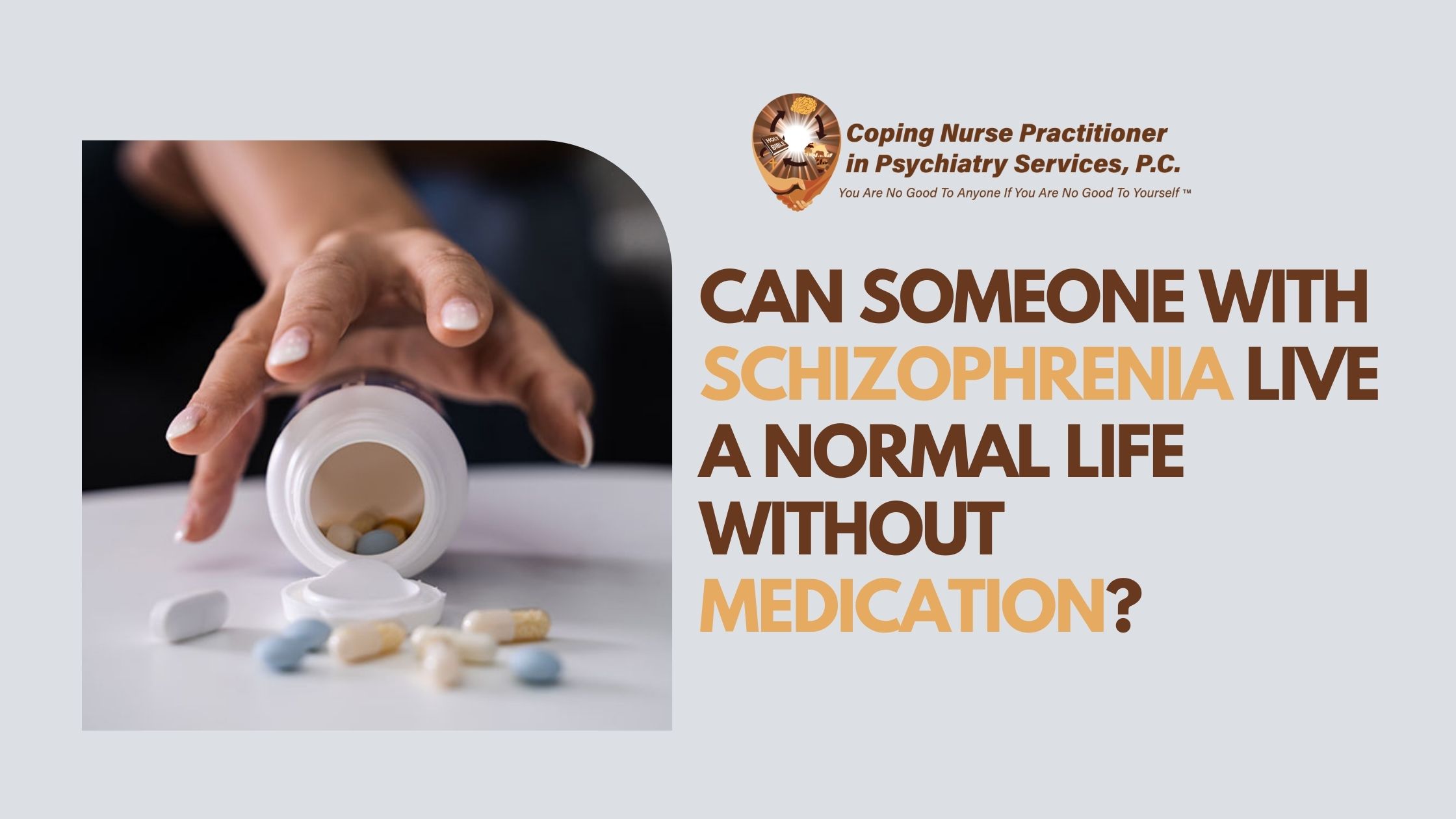While schizophrenia has long been considered a condition that requires lifelong management, the question arises:
Can someone with schizophrenia live a regular life without medication?
This is a deeply nuanced topic that depends on various factors, including the severity of the disorder, access to support systems, alternative therapies, and individual resilience.
What is the definition of schizophrenia?
Schizophrenia is not a one-size-fits-all condition. It manifests in a spectrum of symptoms ranging from mild to severe.
These symptoms are broadly categorized into:
- Positive Symptoms: These involve experiences that are not typically present in healthy individuals, such as hallucinations (seeing or hearing things that are not there), delusions (strong beliefs in false things), disorganized speech, and erratic behavior.
- Negative Symptoms: These reflect a reduction or loss of normal functions, including apathy (lack of interest or enthusiasm), reduced emotional expression, social withdrawal, and lack of motivation.
- Cognitive Symptoms: These are related to difficulties in thought processes, such as impaired memory, trouble concentrating, and difficulty making decisions.
The interplay of these symptoms can make it challenging for individuals to function daily without some intervention.
What is the role of Medication in Managing Schizophrenia?
Antipsychotic drugs are frequently the mainstay of treatment for schizophrenia. They enable people to live more organized lives by modifying brain chemistry to lessen the severity of psychotic episodes and stabilize mood. Weight gain, sleepiness, and occasionally serious side effects like tardive dyskinesia (involuntary muscle movements) are all possible side effects of these drugs. Because of these disadvantages, some people consider treating the illness without medicine.
What factors that Influence living without Medication?
Living without medication is possible for some individuals with schizophrenia, but it requires specific circumstances and a robust support system. Below are the critical factors that play a role:
Severity of the Condition
- Mild Cases: People with mild symptoms may manage their condition without medication by utilizing alternative treatments and making lifestyle adjustments.
- Severe Cases: Those with frequent psychotic episodes or significant impairments often require medication to maintain functionality and safety.
Support Systems
- Family and Friends: A strong network of loved ones can provide emotional and practical support, ensuring the individual does not feel isolated.
- Community Resources: Support groups and mental health professionals can offer coping strategies and a sense of belonging, vital in managing symptoms without medication.
Therapeutic Interventions
- Cognitive Behavioral Therapy (CBT): This therapy helps individuals identify and manage triggers, challenge delusional thoughts, and develop healthy coping mechanisms.
- Specialized Therapies: Art therapy, music therapy, and mindfulness practices can help individuals express emotions and reduce stress.
Lifestyle Adjustments
- Exercise: Regular physical activity can improve mental health by releasing endorphins and reducing stress.
- Balanced Diet: Proper nutrition supports brain health, with certain foods potentially reducing symptom severity.
- Sleep Hygiene: Consistent and restorative sleep is crucial for mental stability.
Self-Awareness and Insight
Highly self-aware individuals who recognize their symptoms early can often take preemptive measures to avoid deterioration. This includes monitoring stress levels and avoiding known triggers.
The Importance of Early Intervention
Early intervention significantly impacts outcomes in schizophrenia. Studies show that individuals who receive treatment during the early stages of the disorder often experience better long-term outcomes, even if they later choose to manage their condition without medication.
| Stage of Schizophrenia | Impact of Early Intervention |
| Prodromal Phase | Reduces progression to full-blown psychosis. |
| Acute Phase | Shortens the duration of psychotic episodes. |
| Recovery Phase | It enhances functionality and reduces relapses. |
Alternatives to Medication
For those considering life without medication, several alternative approaches can help manage symptoms:
Psychotherapy
- CBT: Helps individuals reframe distorted thinking and manage behavioral challenges.
- Family Therapy: Enhances family dynamics, improves communication, and reduces stress within the household.
Holistic Therapies
- Acupuncture and Meditation: These practices can reduce anxiety and promote relaxation.
- Herbal Remedies: Some individuals explore natural supplements to support mental health, though professional guidance is essential.
Diet and Nutrition
- Omega-3 Fatty Acids: Found in fish and flaxseed, these may reduce psychotic symptoms and improve brain health.
- Antioxidants: A diet rich in fruits and vegetables helps combat oxidative stress, which has been linked to schizophrenia.
Risks of Going Without Medication
Living without medicine is possible, but there are hazards involved.
People who choose not to take their medications are more prone to:
- Relapses: Psychotic episodes are more likely to occur when medicine is not taken.
- Social Isolation: Withdrawal from social engagements might result from worsening negative symptoms.
- Functional Impairments: Cognitive symptoms can interfere with daily tasks, employment, and education.
- Harm: Severe symptoms may result in self-harm or behaviors that pose a risk to others.
How to Make the Decision
Deciding whether to live without medication is deeply personal and should involve consultation with healthcare professionals.
Below are the key steps:
- Consult a Psychiatrist: Talk about the benefits and drawbacks of your situation.
- Evaluate Support Systems: Ensure you have a reliable network of support.
- Monitor Symptoms Closely: Keep a journal to track mood, behavior, and changes in thoughts.
- Have a Crisis Plan: Prepare for emergencies by identifying warning signs and having contacts readily available.
Final Thoughts
Antipsychotic medications are often the cornerstone of schizophrenia treatment. By altering brain chemistry to reduce the intensity of psychotic episodes and stabilize mood, they help people lead more structured lives. These medications can cause weight gain, drowsiness, and sometimes more significant side effects, including tardive dyskinesia (involuntary muscle movements). Some patients consider treating their ailment without the use of medication because of these drawbacks.

Leave a Reply